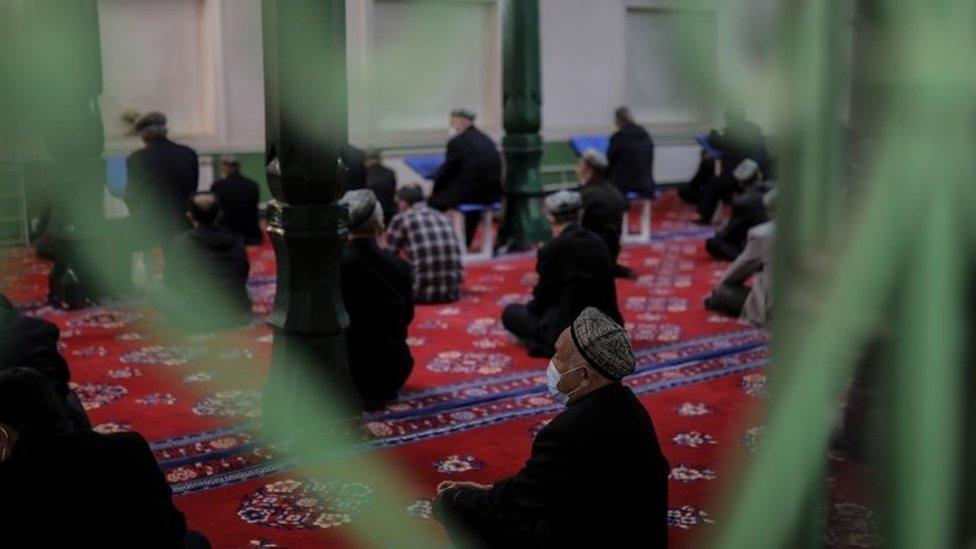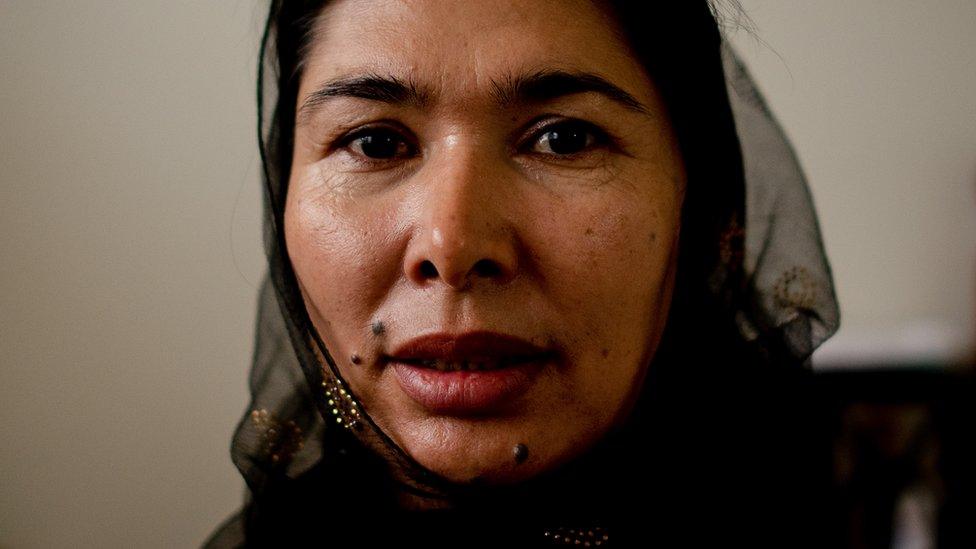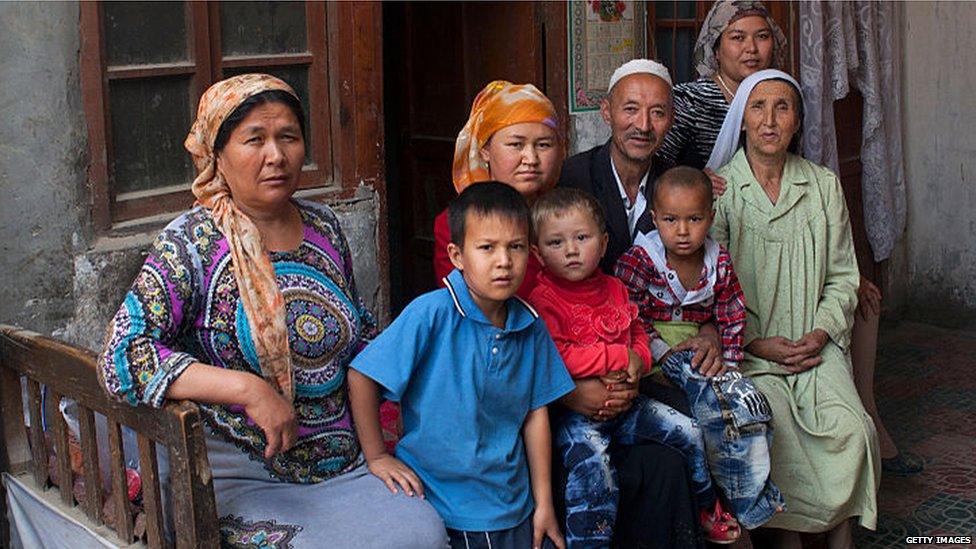Australia's Curtin University wants 'unethical' AI study retracted
- Published

Rights groups fear AI could be used to persecute Uyghurs. This picture was during a Chinese-government organised trip for journalists
An Australian university is calling for a controversial facial recognition study by an ex-faculty member to be retracted by its publisher.
The research, which was co-funded by China, used facial recognition software to identify members of the Uyghur minority group.
But Curtin University said the study breached ethics guidelines, with the subjects not giving informed consent.
The publisher, Wiley, said it was looking again at the research.
In a statement, Wiley said it had previously investigated the study and was "now reviewing the matter again taking into account the new information provided by Curtin University".
Curtin University said that the research was carried out without its consent, and that it had now strengthened its oversight.
In a statement provided to the BBC, it said: "Curtin University unequivocally condemns the use of Artificial Intelligence, including facial recognition technology, for any form of ethnic profiling to negatively impact and/or persecute any person or group."
China has faced multiple allegations of abuses against Uyghurs, including accusations it has committed genocide and forcibly sterilized women.
Human rights groups believe China has detained more than one million Uyghurs in a large network of what the state calls "re-education centres", and sentenced hundreds of thousands to prison terms.
China has denied all accusations it has mistreated Uyghurs.
More on China and the Uyghurs:
After Australia's ABC News investigated the study in 2019, human rights groups warned facial recognition technology could be used to persecute minority groups.
The study's author, academic Wanquan Liu, has since resigned and moved to a Chinese university. The BBC has emailed him for comment.
The chair of the Australian parliament's intelligence and security committee, James Paterson, expressed concern over the situation.
"It does raise troubling questions about how this research was allowed to be conducted in the first place and why it went undetected for so long," he told ABC News.
China's ambassador Liu Xiaoming: "There is no such concentration camp in Xinjiang"
China-Australian ties have deteriorated in recent years, with universities a flashpoint.
Chinese pro-democracy students have warned of harassment if they speak out on sensitive issues, while Australia's government has set up a taskforce to combat what it described as "unprecedented levels" of foreign interference.
In a move likely to raise tensions further, the UK, US and Australia have announced a historic security pact in the Asia-Pacific, in what's seen as an effort to counter China.
Related topics
- Published2 February 2021

- Published24 May 2022
